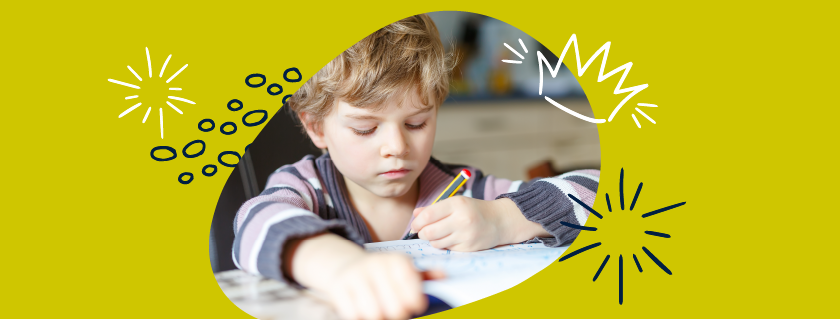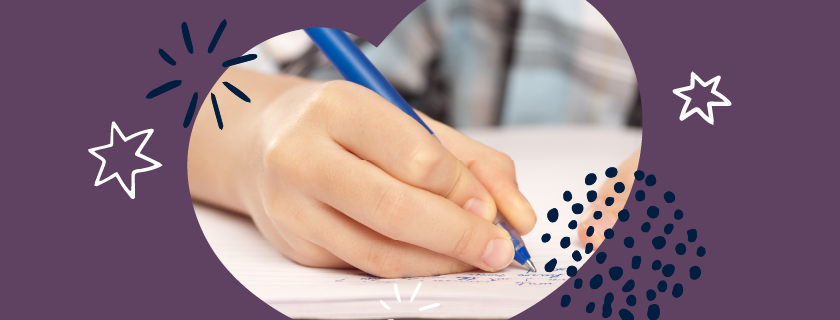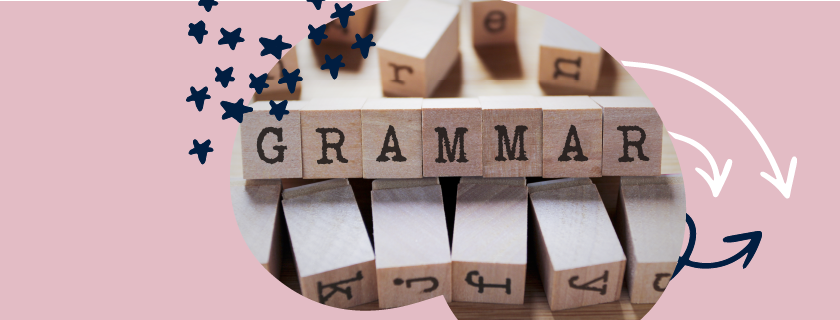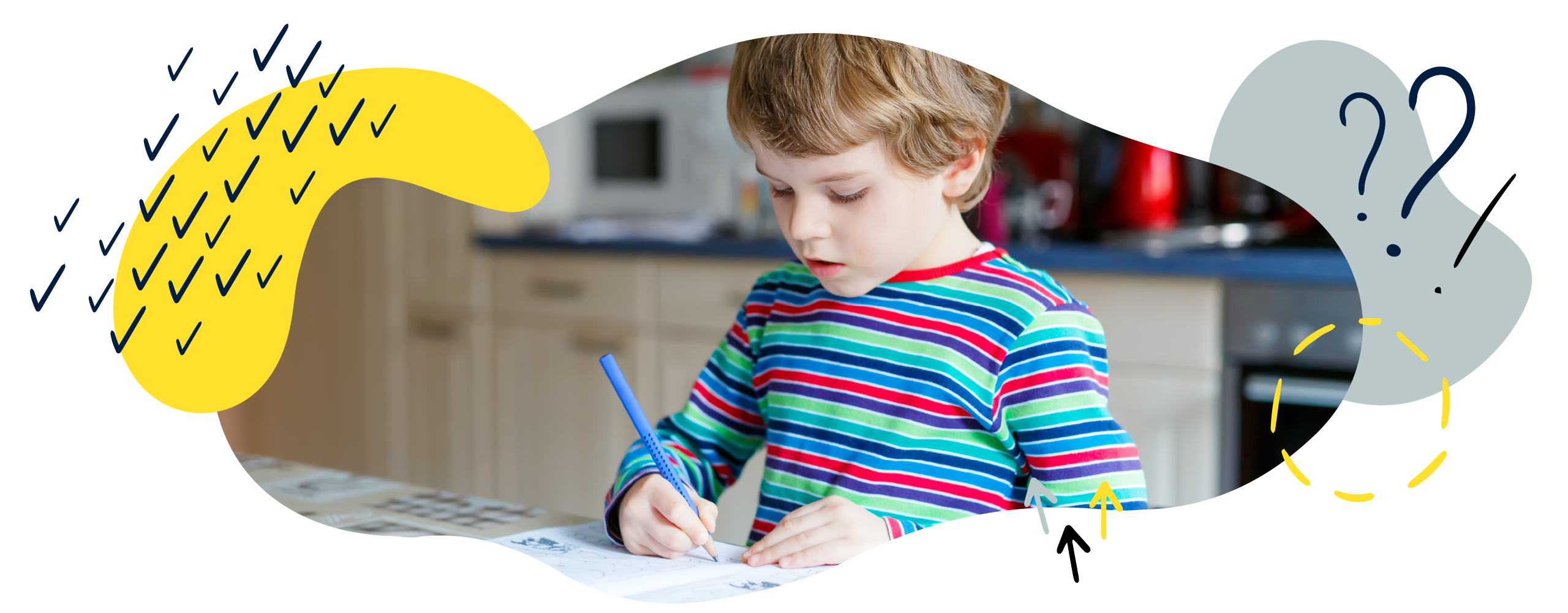Writing in Year 1 (age 5–6)
In Year 1, your child will learn to write sentences, discuss their writing, and read their writing aloud.
Read on to discover the National Curriculum expectations for writing in Year 1, and to find out how you can support your child at home.
How to help at home
There are lots of ways you can help your Year 1 child with writing. Here are our top ideas.
1. Read to your child
At this age, your child will only be able to read quite simple books by themselves. You can help expand their vocabulary and their understanding of language by reading them books that they can’t read independently yet.
Be sure to keep your child engaged. You would be surprised at the difference putting on funny voices, asking the occasional question, and pointing out interesting pictures makes to your child’s enjoyment of reading!
For books to read with your child, take a look at our free eBook library.
2. Have your child to read to you
Making time to hear your child read isn’t just good for their reading. Seeing words in print helps them to understand the words, to spell them, and to see how grammar and punctuation are used to make meaning.
When you read, occasionally talk about why the author has decided to include something and how they written it. For example:
‘I wonder why the author has chosen to describe the castle as “gloomy”? I wonder what that tells us about what might happen there?’
3. Try some real-world writing
Writing for a real purpose can be a great way to fit in practice. Writing cards, shopping lists, or letters to relatives can be motivating real life reasons for writing, and can show children how useful it is to be able to write well.
At this age, it is a good idea to keep writing sessions short but frequent. For example, you could get writing into your child’s daily schedule by asking them to write down their favourite part of the day before they go to bed.
If your child keeps a diary like this over an extended period, it won’t be long before you can both see some real improvement in their writing (and you’ll have a lovely record of them growing up too!).
4. Tell stories aloud
Giving your child the opportunity to tell stories orally is a great way to get them used to structuring their ideas and using adventurous language.
If they’re not sure where to start, see if they can retell a story that they already know well, like Little Red Riding Hood or Three Little Pigs.
For more practical tips on helping your child improve their storytelling confidence, watch our storytelling skills video with Suzy Ditchburn:
Video: How to develop storytelling skills
What your child will learn at school
In Year 1 (age 5–6), your child will learn to:
-
- Write sentences by:
- Saying what they are going to write about out loud
- Composing a sentence orally before writing it
- Sequencing sentences to form short narratives
- Re-reading what they have written to check that it makes sense.
- Discuss what they have written with the teacher or other pupils
- Read aloud their writing clearly enough to be heard by their peers and the teacher.
- Write sentences by:
Handwriting, spelling, grammar, and punctuation are all important aspects of writing too. You can find out more about them on our dedicated pages:

Handwriting in Year 1 (age 5-6)
Find out more about handwriting in Year 1 at Primary School.

Spelling in Year 1 (age 5-6)
Find out more about spelling in Year 1 at Primary School.

Grammar and punctuation in Year 1 (age 5-6)
Find out more about grammar and punctuation in Year 1 at Primary School.
